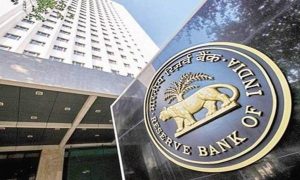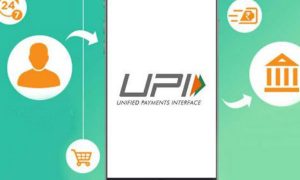India’s central bank digital currency, or digital rupee, has seen the light of the day and is currently in its trial mode to test the robustness of the entire process of its creation, distribution and retail usage in real-time. Eight banks have been identified for phase-wise participation in this pilot. Now, as the digital rupee is a fungible legal tender issued by the RBI, do users need bank account to use it, like UPI?
Experts said that as the digital rupee is a legal tender, it should not be necessary for users to have a bank account linked to the digital rupee wallet. However, they said in order to load or withdraw the money from the wallet, users need to have a bank account linked to the wallet.
Also Read : Modi’s pet schemes: How allocation changed for Ujjawala, PM Kisan, Awas Yojana in last 5 Budgets
Anup Nayar, CEO (Domestic) of fintech service provider In-Solutions Global, said, “A central bank digital currency (CBDC) is a fungible legal tender issued by the central bank in a digital form. Holders of CBDCs do not need to hold a bank account with a retail or a commercial bank. Users can transact with the digital rupee through digital wallets offered by participating banks. Both person-to-person (P2P) and person-to-merchant (P2M) transactions will be possible.”
He, however, added that to load the wallet and redeem the amount from the wallet, a bank account is necessary.
Ashwin Chawwla, founder and managing director of Digital Escrow payments platform Escrowpay, said, “Yes, the digital rupee is linked to a bank account. You can upload digital rupee from your bank to your personal eRupee wallet.”
The RBI has also said the retail digital rupee would be distributed through banks. It also said the digital rupee transaction can be done in denominations as it would be issued in the same denominations that paper currency and coins are currently issued.
Also Read : Senior Citizen FD interest rate goes up again. Here are the banks that have raised rates
Chawwla said the eRupee tokens can be loaded/ added only via linked bank account. eRupee account is credited with tokens to your personal wallet held with the government.
Yes Bank, which is involved in the pilot launch of the digital rupee, said in a statement, “Customers can use the Digital Rupee wallet to make payments to merchants and individuals, who are part of the CUG pilot. Payments to merchants can be made through a unique QR code displayed at respective merchant touchpoints. To participate in this digital payment journey and activate their wallet, the select few customers will have to download the YES BANK Digital Rupee wallet using the web link that will be provided by the Bank.”
Queries sent to SBI, which is also involved in the digital rupee trial, did not elicit any response after repeated reminders.
A senior official with a public sector bank also said that in order to load money to the digital rupee wallet or withdraw money from there, one needs to have a bank account to link the wallet.
He, however, added that if someone wants to receive money in their digital wallet, he or she can do so without having a bank account. They can also transfer the digital rupee to someone else’s wallet.
How Is Digital Rupee Different From Digital Money or Cryptocurrency For A User?
In-Solutions Global’s Anup Nayar said CBDC is a digital form of fiat currency issued by the Central Bank and cryptocurrencies are digital assets on a decentralized network, away from any government or central bank’s chains. The digital currency will be the same as a sovereign currency and exchangeable at par with the existing currency. On the other hand, cryptocurrency is a form of currency that has its own denomination and uses cryptography to secure transactions.
The digital rupee would offer features of physical cash like trust, safety and settlement finality. Across the globe, more than 60 central banks have expressed interest in CBDCs with a few implementations already under pilot across both retail and wholesale categories and many others are researching, testing, and/or launching their own CBDC framework.
Also Read : Going abroad? PNB World Travel Card can make your trip stress-free – Details
Four banks are involved in the initial phase of the digital rupee trials — State Bank of India, ICICI Bank, Yes Bank and IDFC First Bank — in four cities across the country. Four more banks — Bank of Baroda, Union Bank of India, HDFC Bank and Kotak Mahindra Bank — will join this pilot subsequently.































